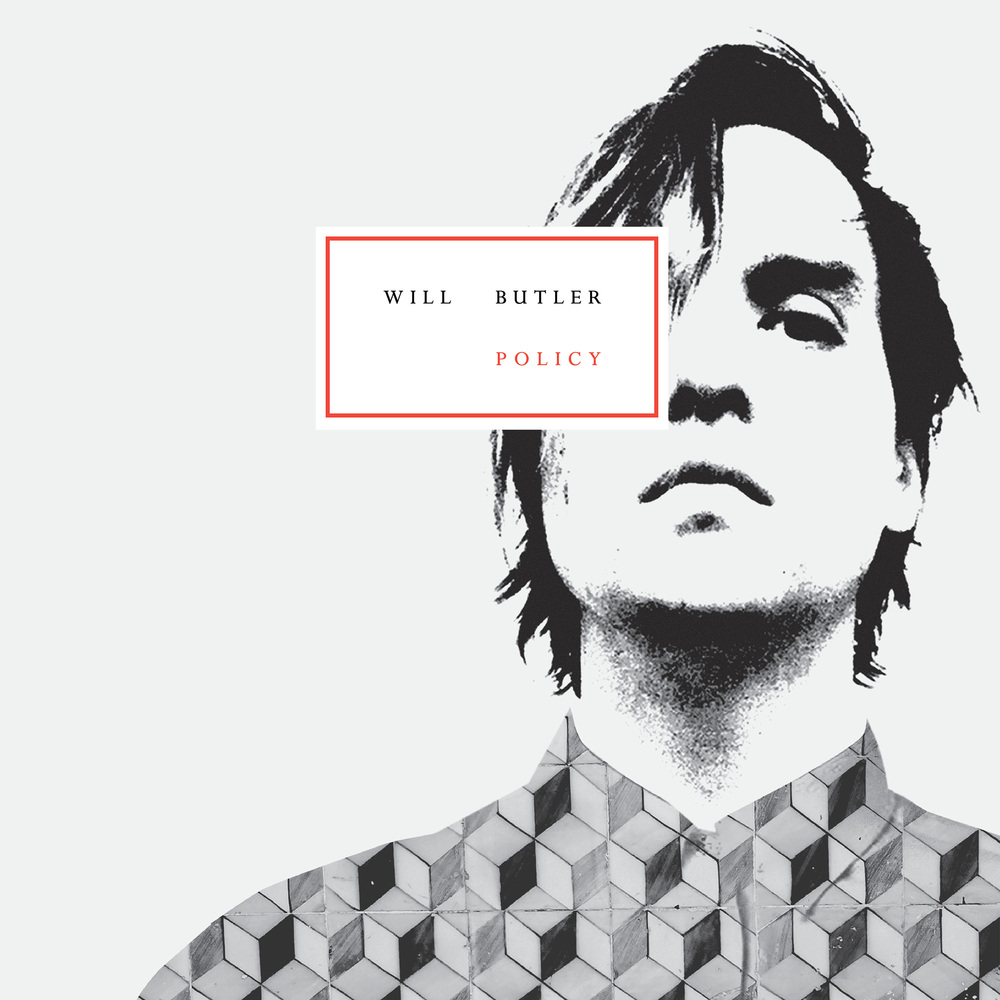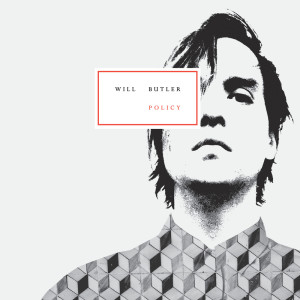
By: Sam Fatula | A&E Editor

The stigma for a younger sibling seems to usually force them to follow the footsteps of their elder counterpart, trying to break free of people’s preconceived notions. The situation for plucky, multi-instrumentalist Will Butler is no different.
Following countless years of standing in the shadowed silhouette of Arcade Fire frontman and also brother, Win Butler, Will has finally placed himself at the forefront of his latest project. His solo debut, Policy, which officially released Tuesday, takes a stab at a multitude of rock subgenres to showcase his flexibility as a musician while simultaneously providing creative songwriting techniques. Although Butler carries a heavy burden as a byproduct of one of indie-rock’s most popular bands to date, Policy suffices in terms of what current Arcade Fire fans would expect, to an extent.
Policy begins with single, “Take My Side,” a garage-rock, lo-fi opener that seeks to immediately grab the listener’s attention with angsty energy. It’s an enjoyable track, and possesses all prerequisites that typically accompany a well-perceived garage rock song: Catchy riff, gritty vocals and a snare drum that dictates the tempo. Interestingly enough, “Take My Side” sounds much like something that came from the mind of Ty Segall, vocals included.
The song’s lyrics however, can be described as highly generic. Butler’s songwriting has no means to convey an important message, which can potentially falter in the track’s lasting value. As an end result, “Take My Side,” has as much playback quality as last week’s pop chart.
The following seven tracks of Policy fall to the same fate. Lyrics clearly damper Butler’s overall star power as a continuing solo artist. Most verses and choruses appear to get buried in the melody, which wouldn’t necessarily be a bad thing if the melodies were memorable. Sadly, Butler takes precedence over covering various genres. Elements of disco come into play in songs “Something’s Coming” and “Anna,” eventually transitioning into softer ballads on “Finish What I Started.” Surely these songs show Butler’s flexibility as a musician, but this release would reach a much higher level of quality if it didn’t come off as combating sounds on subsequent tracks.
Something not to fault on Butler’s part is the instrumentation. Listening to Butler’s flexibility from guitar to piano is astounding. When both of these elements come together like in “Son of God,” the end result is a top 40 single. This combination of soft and garage rock would have made this a much greater release if implemented on every song. It really shows how underrated his talent was when placed behind his older brother on stage, which is great to see.
What is interesting is Butler’s decision to part from Arcade Fire to continue his own songwriting. Many songs from Policy still have elements consistent with the band’s sound. It was as if Butler wanted to prove that he could make content on his own that could potentially rival the band’s previous records like The Suburbs and Reflektor, only more reliant on pop beats and mainstream rock.
If there is anything to take away from this release, is that Butler has clear signs of potential to front his own band if he ever wanted to. However, there needs to be more of a consistent sound to the record in its entirety.
Policy felt much more like an EP in comparison to a full-length album. It is too sporadic in a sense, transitioning to songs without proper juxtaposition. There are some significant high points to be excited about for future Butler endeavors, but improvements need to be made.
Will Butler may still be viewed as Win’s little brother, but no longer will he be unrecognized when touring with the rest of Arcade Fire. In many instances, this record proves evidence of the fact, that Will could be the unsung genius that truly sets Arcade Fire apart as a fan favorite. -Score: 6/10
(Follow @Sam_Fatula on Twitter for daily music & arts news)


